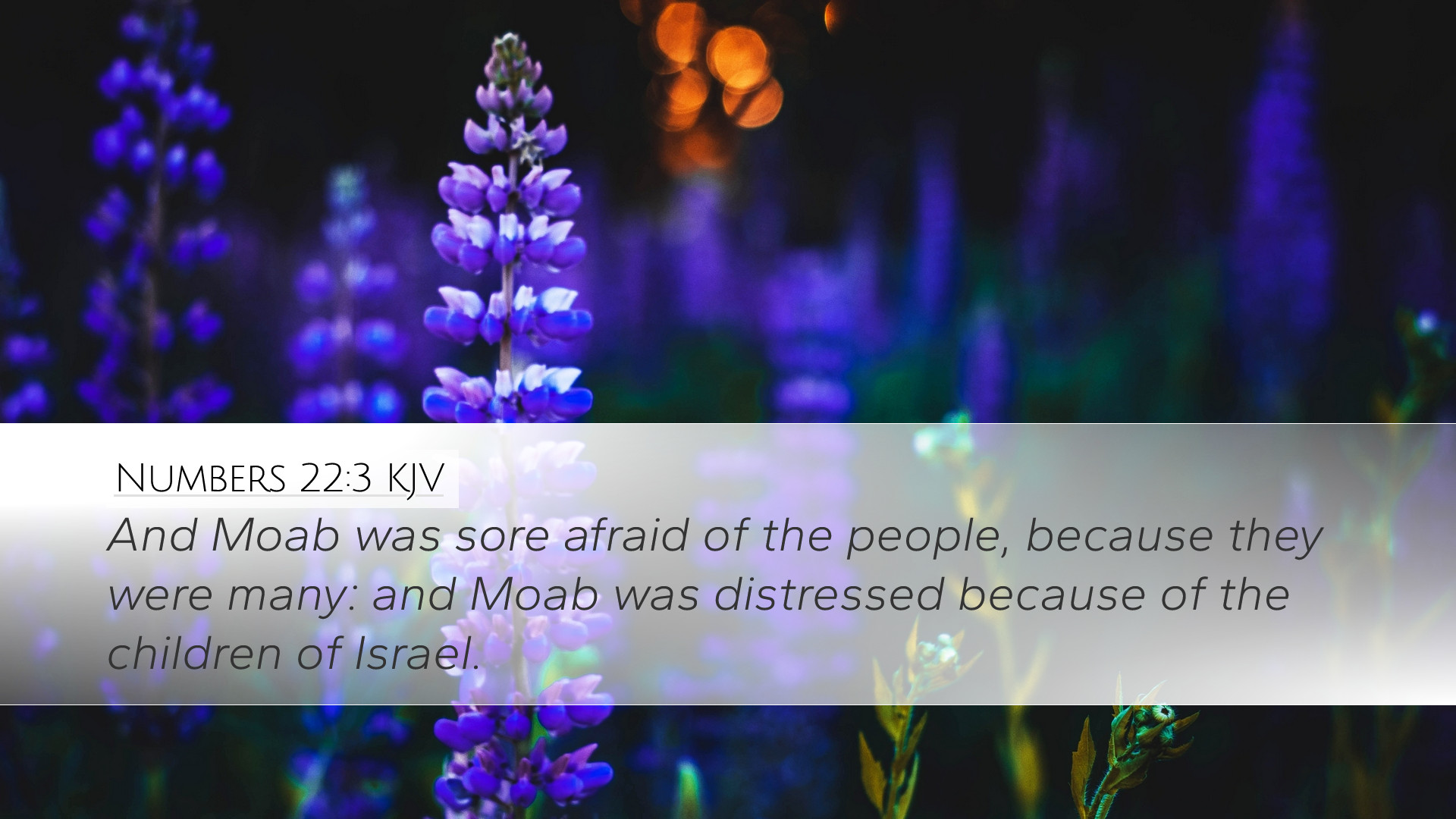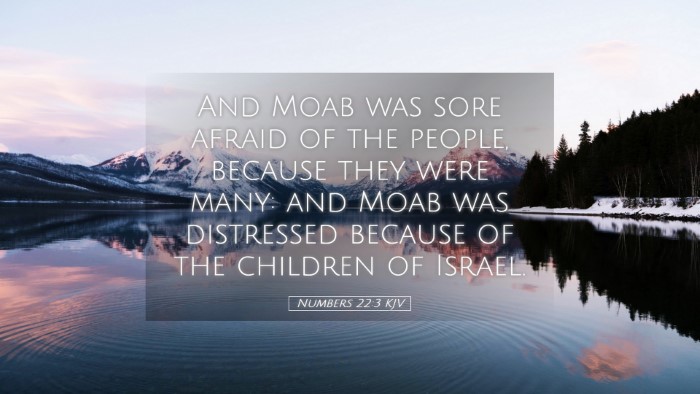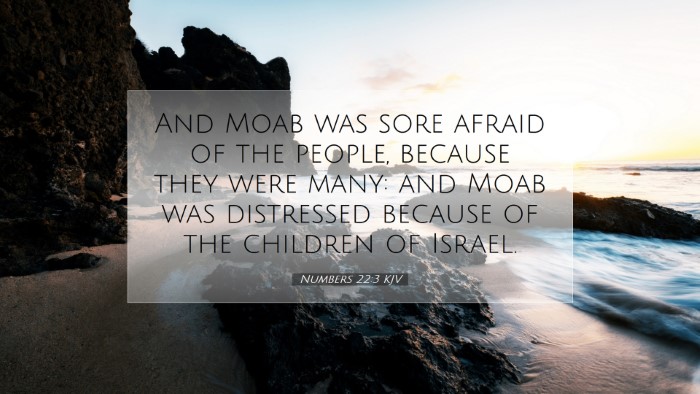Commentary on Numbers 22:3
Verse Context: Numbers 22:3 states, "And Moab was sore afraid of the people, because they were many: and Moab was distressed because of the children of Israel." This passage occurs during the Israelites' journey through the wilderness, where they have become a significant threat to neighboring nations.
General Insights
This verse illustrates the fear that the people of Moab had regarding the Israelites, showcasing a crucial moment that reflects the larger narrative of Israel’s relationship with surrounding nations.
- Fear of Numbers: The fear that Moabites experienced stemmed from the sheer number of Israelites. This fear was not merely a Superstitious reaction but based on observable numerical superiority that caused distress.
- Historical Context: The Israelites were seen as a formidable group due to their recent victories over other kingdoms, thus establishing a reputation that preceded them.
Theological Reflection
This passage encapsulates significant theological themes relevant for pastors and scholars alike:
- God’s Sovereignty: The fear of the Moabites serves to highlight God's sovereignty over the nations and His ability to instill fear and awe in those who oppose His will.
- The Role of Perception: Moab’s perception of Israel reflects the broader theme of how nations view God's chosen people. Fear often leads to misunderstanding and conflict.
- The Efficacy of God’s Presence: This serves as a reminder that the presence of God among His people creates an atmosphere that should be respected and feared by surrounding nations.
Commentaries from Notable Theologians
Matthew Henry
Henry emphasizes the principle that God can instill a holy fear in the hearts of those who oppose His people. He notes that such fear is not merely an emotional response but rather a recognition of the power of God that works through those He has chosen. Henry suggests that Moab’s fear contained an element of prophetic significance, anticipating further conflict and highlights the theme of divine power.
Albert Barnes
Barnes provides a detailed exploration of the geopolitical implications of this passage. He argues that Moab’s fear was reasonable given the historical context of Israel’s miraculous deliverance from Egypt and their victories over other nations. He views the distress of Moab as a reflection of God's active hand in Israel’s affairs, suggesting that they recognized that resistance could lead to dire consequences. Barnes also discusses the implications of this fear on the spiritual and social actions of Moab.
Adam Clarke
Clarke focuses on the psychological aspect of fear and its impact on decision-making. He outlines how fear can lead to irrational choices, as seen in Moab’s response to the Israelites. Clarke suggests that fear of the unknown often leads to desperate measures, such as the later attempts by Balak to hire Balaam to curse Israel. This, Clarke argues, is a significant insight into how spiritual realities influence human actions and relationships among nations.
Application for Today
This passage has significant applications for modern believers, especially in the context of faith and the perceived threat of the Church in contemporary society:
- Understanding Our Identity: Just as Israel was seen as a threat due to their numbers and God’s favor, the Church today might be viewed similarly. This reminds Christians of their vital identity and purpose in the world.
- Facing Opposition: The fear faced by Israel serves as encouragement for believers who encounter opposition or hostility. It reassures them that God goes before them, instilling fear in those who oppose His will.
- Engagement Through Fear: The reaction from Moab should provoke a response of peaceful engagement rather than retaliation. Believers are called to respond to fear with faith, assuming a posture of grace and love in the face of hostility.
Conclusion
Numbers 22:3 serves as a rich text that provides profound insights into God’s character, the dynamics of fear among nations, and the implications for believers today. The commentaries from Matthew Henry, Albert Barnes, and Adam Clarke collectively enrich the understanding of this verse, emphasizing the significance of recognizing God's sovereignty and the narrative of Israel as a model for the Church today.


